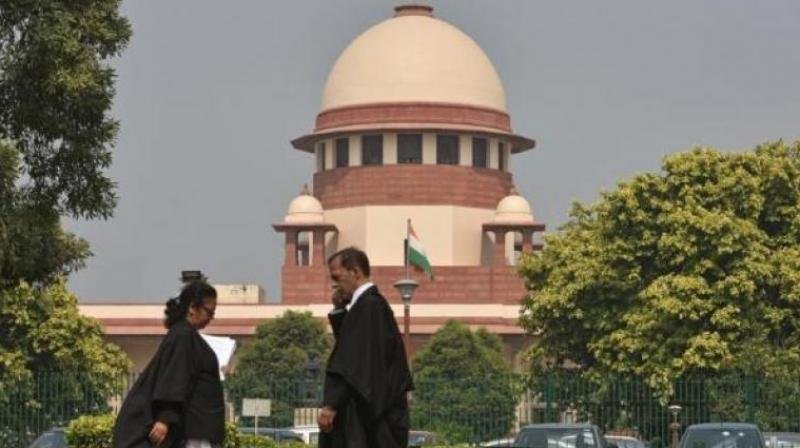National Green Tribunal bans burning of plastic, rubber across the country
இந்திய தேசிய பசுமைத் தீர்ப்பாயம் முறைப்படுத்தப்படாத முறையில் திறந்தவெளியில் ரப்பர்பொருட்களின் கழிவுகளை எரிக்க நேற்று தடை விதிப்பதாக அறிவித்துள்ளது. பிளாஸ்டிக், ரப்பர் மற்றும் பிற பொருட்கள் திறந்தவெளியில் எரிக்கப்படுவது முற்றிலும் தடை செய்யப்படுவதாக அந்த அறிக்கை தெரிவிக்கின்றது.
இந்த தடை முறைப்படுத்தப்படாத பிளாஸ்டிக் கழிவுகளின் கையாளுதலும், அகற்றுதலும் தடை செய்து மறு சீரமைப்பு சூழலில் இயற்கையின் பாதுகாப்பிற்குத்தேவையான நடைமுறைகளை மேற்கொள்ளவும் வழி வகுப்பதாகத் அறிவிக்கப்பட்டுள்ளது.
கடந்த 2011 ஆம் ஆண்டு வரையறுக்கப்பட்ட பிளாஸ்டிக் கழிவு விதிகளுக்கு உட்பட்டு பிளாஸ்டிக் கழிவுகள், பழைய பொருட்கள் விற்பனையாளர்கள், மறுசுழற்சியாளர்கள் மற்றும் பி.வி.சி / பாலிஸ்டர்/ பிளாஸ்டிக் கழிவுகள் விற்பனையாளர்கள் சங்க உறுப்பினர்கள் செயலாற்ற வேண்டும் என என்.ஜி.டி தலைவர் நீதிபதி ஸ்வதந்தர் குமார் கூறியுள்ளார்.
முறைப்படி இந்த விதிமுறைகளுக்கு உட்பட்டு நகராட்சி அதிகாரிகளால் செயலாக்கப்படும் நடைமுறைகள் என்றும் தடை செய்யப்படாது என தீர்ப்பாயம் தெரிவிக்கின்றது.
நகராட்சி அதிகாரிகள் தங்களின் எல்லைக்குள் வரும் கழிவு மேலாண்மைகளை ஒருங்கிணைத்து பிளாஸ்டிக் கழிவுகளை சாலைப்பணிகளில் பயன்படுத்தும் நடைமுறைகளை மேற்கொண்டு கழிவுகளை எரிப்பதன்மூலம் ஆற்றல் சக்தியை உருவாக்கக்கூடிய விதிமுறைகளுக்குட்பட்ட திட்டங்களை நடைமுறைப்படுத்தவேண்டும் என்று தீர்ப்பாயம் தெரிவிக்கின்றது.
National Green Tribunal bans burning of plastic, rubber across the country
The National Green Tribunal has banned ‘unregulated open burning’ of plastic, rubber or such other articles across the country. “All the plastic waste/scrap dealers and/or recyclers including the members of the PVC and Plastic Waste Dealers Association, respondent herein, shall be restrained from carrying on their business of segregation of plastic waste and its eventual transfer to recyclers or disposal contrary to and without registration under the Plastic Waste (Management and Handling) Rules, 2011,” a bench headed by NGT Chairperson Justice Swatanter Kumar said. “There shall be no unregulated open burning of plastic or rubber or such other articles anywhere in India,” it said. The tribunal passed the order while observing “there is a need to totally ban unregulated handling and disposal of plastic waste and to issue incidental directions for its regulation and restoration of environment in some measure, if not fully”. The tribunal also observed in its judgement that plastic and the waste generated from its use “need not be baneful for the environment and eventually the mankind” if it is handled properly and directed all municipal authorities to strictly enforce the provisions of the Plastic Waste (Management and Handling) Rules 2011. It directed all the municipal authorities to ‘set up, Operationalize and coordinate the waste management systems within their limits, work out and set up systems for use of plastic waste in road construction and/or in co-incineration plans for generation of energy in accordance with law and lastly incorporate necessary provisions in their by laws for enforcement of the said rules’. The NGT’s judgement came on a plea alleging illegal burning of plastic, rubber and related waste in various villages in North and North West Delhi. The matter was initially being heard by the Delhi High Court which had in 2011 transferred it to the tribunal. The tribunal directed Delhi government, Delhi Pollution Control Committee, Haryana Pollution Control Board and Municipal Corporation of Delhi, within whose limits villages of Nangloi, Ghewara, Neelwal, Mundka, Kamruddin Nagar, Tikri-Kalan and Ranhaula fall, “to work out a plan” for restoring the land in these areas which have been affected by illegal and unauthorized segregation and disposal of plastic waste. The bench asked for a plan after noting that there has been pollution caused due to unregulated handling of plastic waste and its burning in these areas and it has damaged the environment. It also noted that “unregulated burning of plastics in open or in agricultural land as in the present case is great environmental concern as dioxin generated through it is likely to enter the food chain and passed on to human population. The authorities have been directed by the NGT to submit their plan within a month, and the original petition has been kept pending “for assessment of damages and passing of incidental orders in that regard”.






